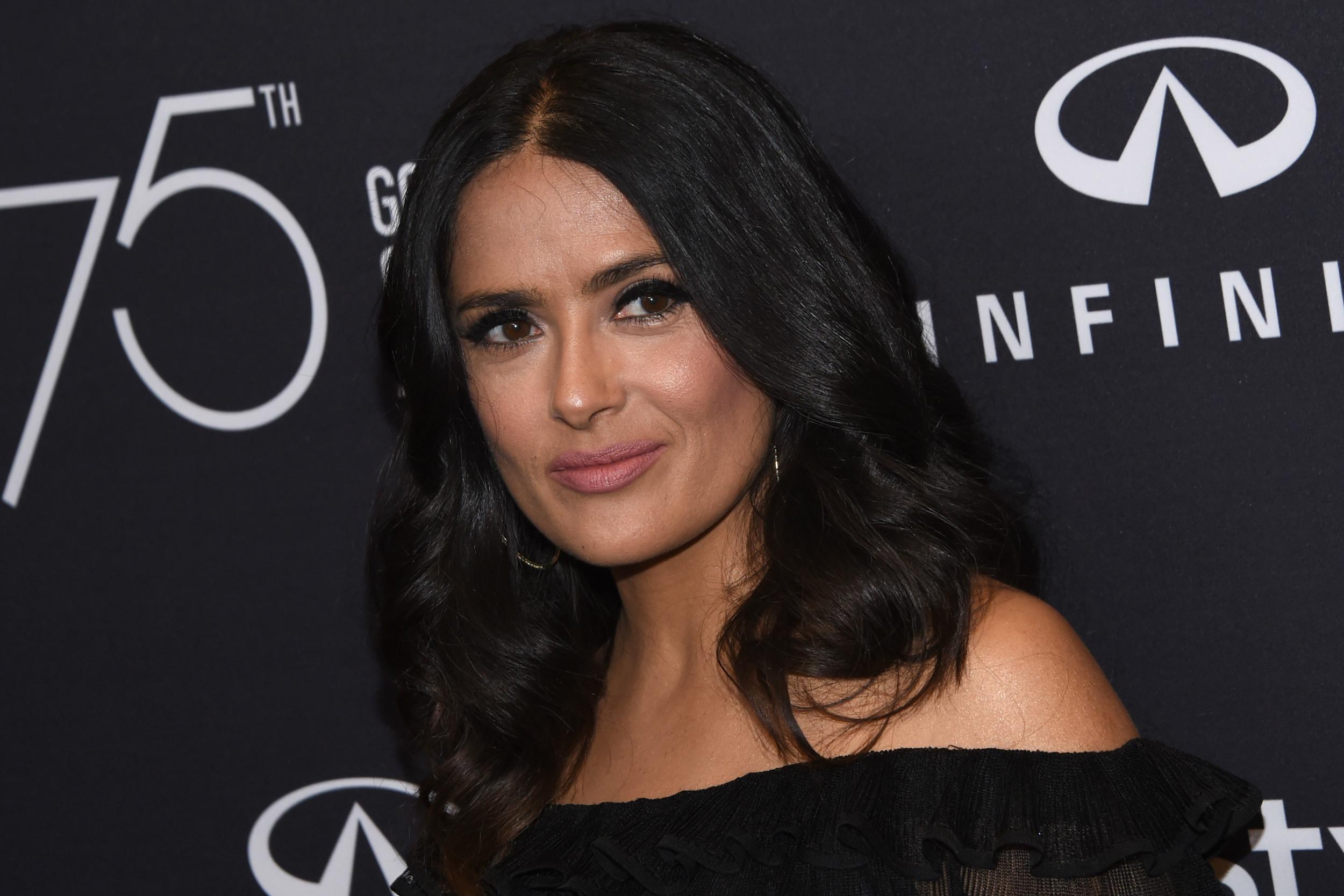Salma Hayek almost didn't publish her Harvey Weinstein story
'I felt like my pain was so small compared to all the other stories'

Your support helps us to tell the story
From reproductive rights to climate change to Big Tech, The Independent is on the ground when the story is developing. Whether it's investigating the financials of Elon Musk's pro-Trump PAC or producing our latest documentary, 'The A Word', which shines a light on the American women fighting for reproductive rights, we know how important it is to parse out the facts from the messaging.
At such a critical moment in US history, we need reporters on the ground. Your donation allows us to keep sending journalists to speak to both sides of the story.
The Independent is trusted by Americans across the entire political spectrum. And unlike many other quality news outlets, we choose not to lock Americans out of our reporting and analysis with paywalls. We believe quality journalism should be available to everyone, paid for by those who can afford it.
Your support makes all the difference.Salma Hayek Pinault has detailed her own emotional journey in coming forward with her accusations against Harvey Weinstein.
In a New York Times piece titled “Harvey Weinstein Is My Monster Too”, the actress revealed horrifying allegations of abuse experienced during the production of the 2002 biopic Frida, in which she starred, as she accused Weinstein of threatening to kill her in a fit of rage when she turned him down.
She said she repeatedly said no to the producer’s sexual advances over a number of years, at “hotel after hotel, location after location, where he would show up unexpectedly”. Every refusal was met with his “Machiavellian rage,” she said, and in one “attack of fury” he said: “I will kill you, don’t think I can’t,” she claimed.
Attending a taping of Oprah Winfrey’s podcast, SuperSoul Conversations (via The Hollywood Reporter), Hayek revealed that she’d initially declined the offer to write a piece for the Times when first approached. She admitted that every time she went to pick up the pen to write the story, she would cry, subsequently calling to cancel the piece.
“[The Times] contacted me to be a part of the first story and already by this contact, there was all this turmoil and I started crying when they asked and I ended up not doing it,” she said. “And then I felt ashamed that I was a coward. I was supporting women for two decades, and then I was a coward.”
She described her own anxieties that her story wasn’t important enough to be told, adding: “[Weinstein] had a lot of respect for me. I earned it with blood, but he did. When the information about Harvey came out, I was ashamed I didn’t say anything. But I felt like my pain was so small compared to all the other stories.”
A rationale that she blamed on past experiences of sexual assault and harassment growing up, before her Hollywood career. “[Weinstein] was not the first guy to do this to me. I was really smart around him. I handled it really well,” she said. “And maybe that’s why he didn’t rape me.”
More than 60 women have now come forward with accusations of sexual assault and harassment by Weinstein. The producer has said that all sexual acts were consensual, while his legal team have called a number of the other allegations "false".
Follow Independent Culture on Facebook for all the latest on Film, TV, Music, and more.
Join our commenting forum
Join thought-provoking conversations, follow other Independent readers and see their replies
Comments